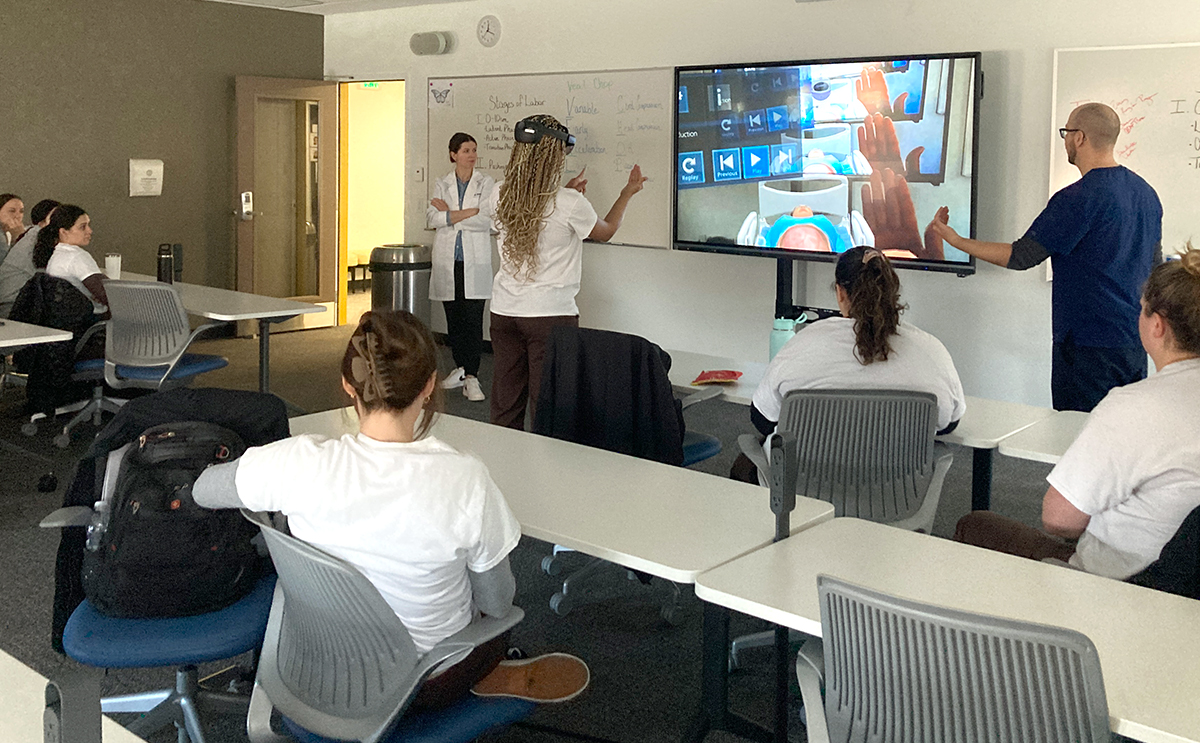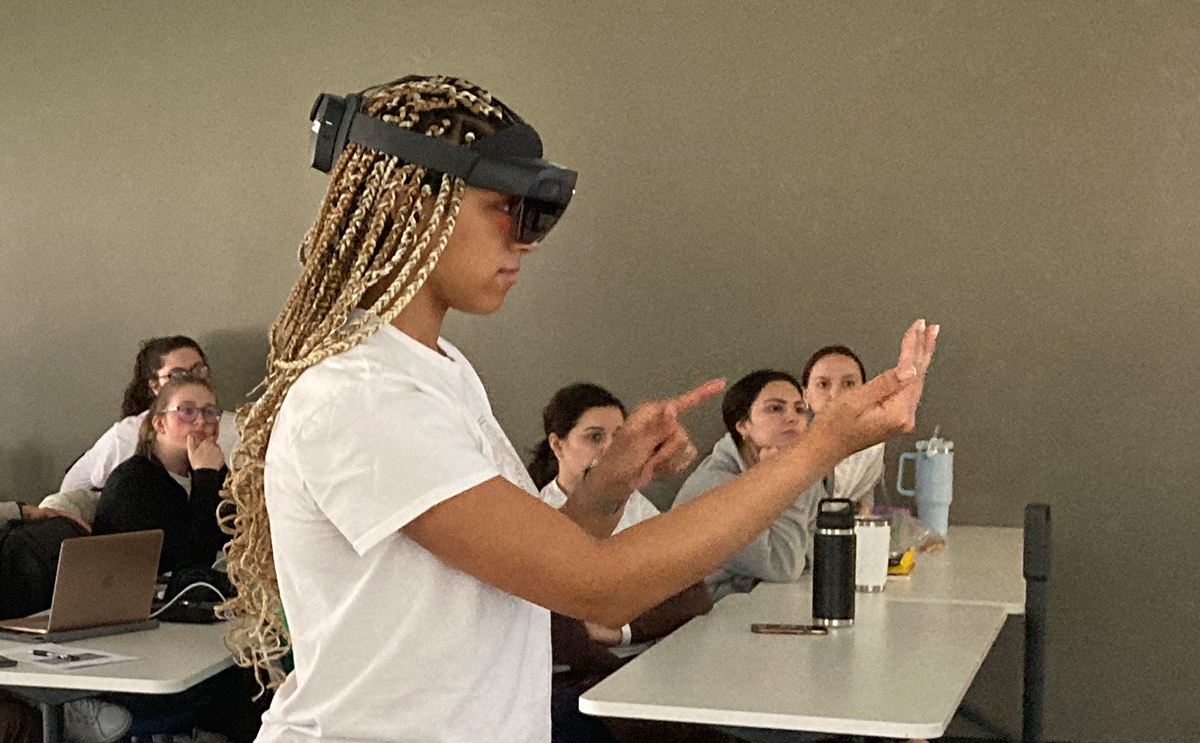The most recent, cutting-edge upgrades in HoloLens technology offer realistic practice diagnosing and responding to a range of healthcare conditions.

While robust clinical partnerships offer real-world experience that is vital in healthcare education, so, too, is state-of-the-art technology for no-risk practice in high-risk situations.
The immersive technology — a blend of virtual and augmented reality — allows users to interact with three-dimensional patients.
The life-like simulations, available through the latest HoloLens software, help students in BW's nursing program practice assessment, diagnosis and treatment in real-world scenarios.
Chris Seminatore, director of BW's nursing lab, says the technology plays a huge role in creating learning experiences that allow students to visualize and apply what they've learned in classroom instruction under a broad range of circumstances, even those less frequently encountered on the job.
"While the students spend time in the clinical setting gaining experience taking care of patients with various conditions, many of the conditions the HoloLens allows us to simulate are either rare or might be considered an emergency. In healthcare, experience is often needed to gain knowledge and confidence. HoloLens allows students to build that experience in situations that are usually limited in real life."
Wearing a HoloLens headset, a student can see and touch the body's organs and systems, and the class can follow along with projected images. Seminatore says, "This allows for detailed discussions to occur and an in-depth learning experience for all."
Seminatore adds that HoloLens can be combined with other technology in BW's nursing labs.
"For example, we possess a high-fidelity mannequin that simulates the physiology of a person and can even be programmed to simulate a birth. Using the HoloLens, we can place a hologram over this birth simulator, allowing students to see what would be happening inside of a patient's body during different diseases' processes."
For Tiana Card '22, ABSN '24, who is on track to complete BW's 15-month Accelerated Bachelor of Science in Nursing (ABSN) program in December, the simulated practice supports her goal to work in labor and delivery following graduation.
"The birthing simulator and the HoloLens gave me great insight to see what's happening inside the body during different types of births," explains Card, who earned a BS in biology with a chemistry minor from BW in 2022.

Card, who also has an interest in aesthetic nursing, feels prepared for her future in healthcare.
"My BW experience has been wonderful since my very first day; that's why I came back to BW for my second degree," the Brook Park, Ohio, native adds. "From the cadaver labs I utilized in undergrad, to the very real mannequins, as well as the virtual and real-life simulations in nursing, I feel as if my education has been top tier at BW."
In fact, Nursing Schools Almanac has once again ranked BW as #2 out of the 45 "Best Prelicensure Bachelor of Science in Nursing (BSN) Programs in Ohio" for 2024.